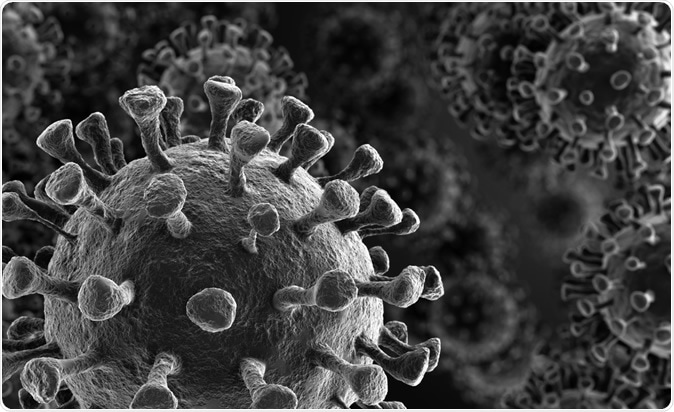The novel coronavirus (2019-nCoV) can spread rapidly, with at least a thousand new infections and a hundred of deaths each day. The epicenter of the outbreak, Wuhan in China, has been locked down since the peak of the outbreak. Now, Chinese officials say they’ve developed a new coronavirus app that tracks people and alerts them if they have been in close contact with the deadly virus.

Coronavirus 2019-nCov, 3d illustration. Creativeneko / Shutterstock
The National Health Commission of China has shared on its website that various government agencies, including the General Office of the State Council, and China Electronics Technology Group Corporations (CETC) developed the new mobile app, dubbed as the close contact detector.
The close contact detector
Released on Feb. 8, the app allows users to scan a QR code and submit their name, contact number, and ID number to see if they’ve come in close contact with someone infected with the coronavirus. They can scan a QR code via mobile apps like WeChat, QQ, or Alipay.
With the help of the new mobile app, users can detect if they’ve come in close contact with an infected person while they were using public transportation, including planes, trains, and buses. Those who found they have been in contact, should stay at home and call their local health authorities.

What is considered a close contact?
Close contact is defined as someone who has come in close distance with infected people. These people don’t have effective protection such as masks and gloves. Close contacts also include individuals who work closely together or students in a classroom. People who live in the same household can also be tagged as close contact. Others include medical staff, people who stayed in the same room, or passengers in public utility vehicles such as buses, trains, and planes.
In airplanes, health officials defined those at risk of getting infected are those in the same row and three rows front and back of a confirmed case or a suspected case of the novel coronavirus. Meanwhile, in a fully air-conditioned train, all passengers and crew in the same compartment have been exposed to the virus if someone is infected.
The U.S. Centers for Disease Control and Prevention (CDC) defines a close contact as anyone who has been within 6 feet of a person infected with the virus for a prolonged period of time, including those who had direct contact with an infected individual’s body fluids and secretions.
How to protect yourself
In cases like the novel coronavirus, prevention is better than cure. At present, there is no vaccine or treatment developed to fight the deadly virus. The best way to prevent infection is to avoid being exposed to the virus, the CDC warns.
The CDC encourages individuals to avoid close contact with sick people, avoid large crowds, and avoid touching your mouth, nose, or eyes with unwashed hands. When you are sick, it’s advisable to stay at home and cover your mouth or nose when sneezing or coughing with a tissue. After using the tissue, throw it immediately in the trash. Wash your hands with soap and water regularly and disinfect touched objects frequently. If soap and water aren’t available, use an alcohol-based hand sanitizer containing 60 percent alcohol.
Further, the CDC does not recommend using facemask for protection from respiratory viruses, such as the novel coronavirus. These are only recommended for those who manifest symptoms of the infection and healthcare workers who serve as front liners in the combat against the virus.
Source:
China Electronics Technology Group Corporations (CETC)